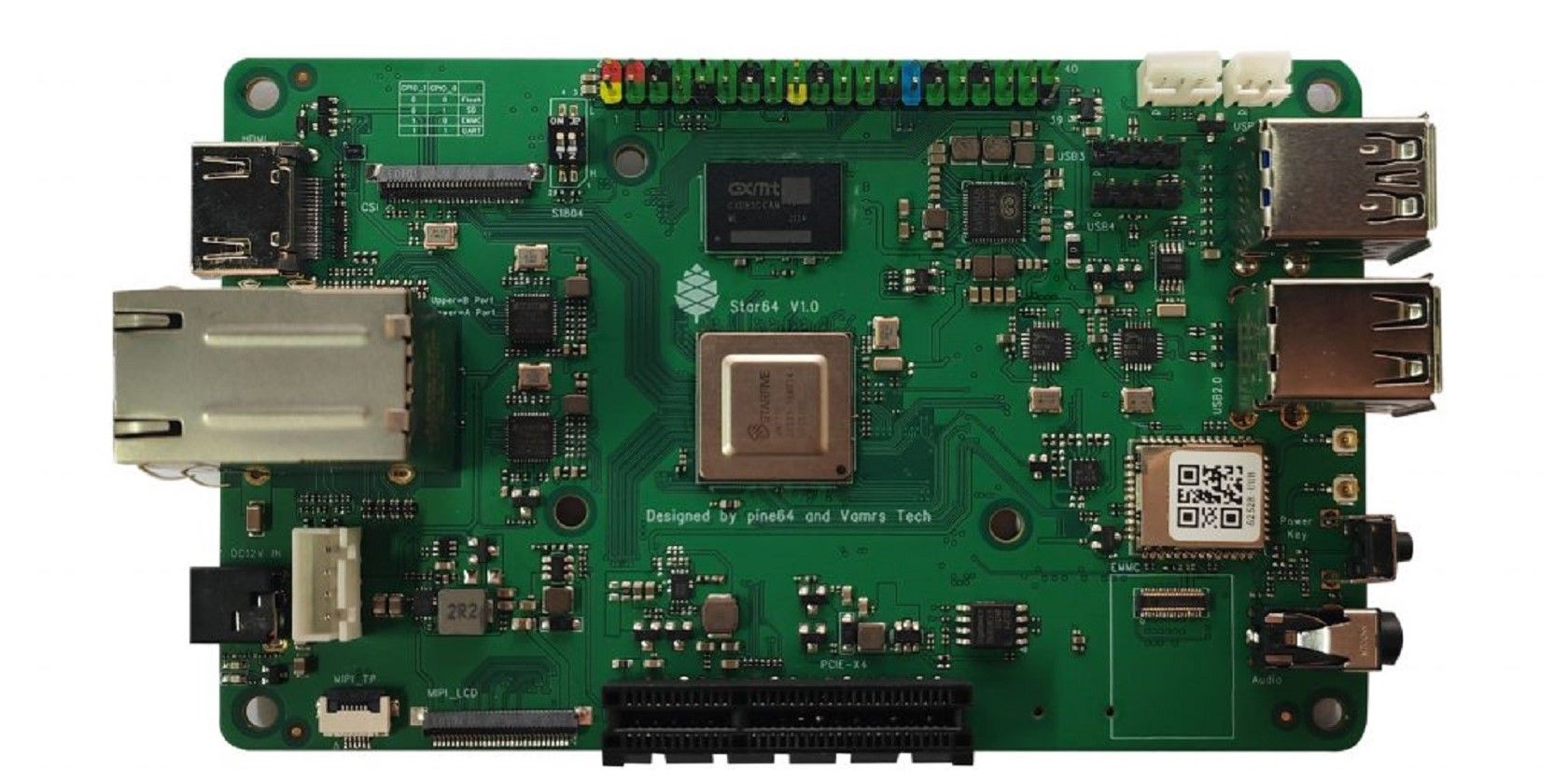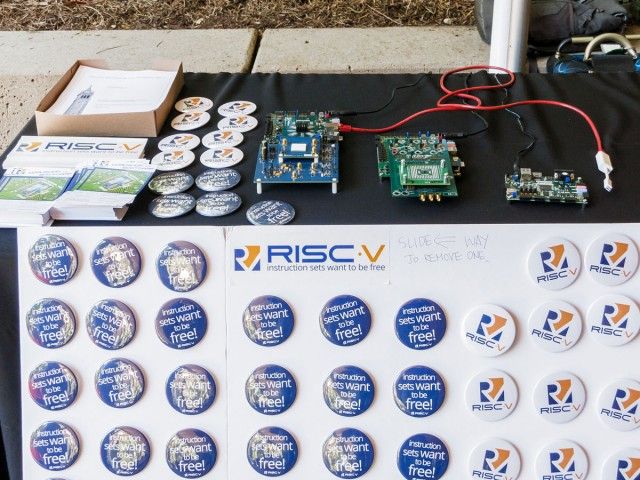There are quite a number of companies seeking to replicate the success of the Raspberry Pi Foundation with offerings for the consumer and industrial markets. However, few are as notable as Pine64. In August 2022, this company announced the Star64 RISC-V single-board computer, a low-cost minicomputer with a RISC-V processor and eMMC module capability.
With the right kind of push, this board could very well present a considerable challenge to the Raspberry Pi. The product isn’t available for purchase at the time of writing, but it has a number of exciting features which we will take a look at.
What Is Pine64?
Pine64, or Pine Store Limited, is a Hong Kong-based company founded in 2015. The company's first offering was the Pine A64 which sought to compete with the Raspberry Pi 2. The project was funded via a Kickstarter campaign that managed to raise up to $1.7 million dollars. The company continued on to produce other devices such as smartphones, smartwatches, tablets, notebook computers, and soldering irons.
The PinePhone is one of the most popular Linux smartphones on the market. It allows you to run a close-to-mainline Linux kernel and comes preloaded with Manjaro, but you can install any other compatible operating system. Since the PinePhone is designed to allow the user as much control as possible, you can make custom hardware extensions using the six pogo pins on the device. All in all, the PinePhone is a competent take on an open-source smartphone.
Despite its more comprehensive range of offerings, Pine64 has never shied away from its legacy as a Raspberry Pi Foundation competitor. The name is based on two mathematical constants, Pi, and Euler’s number e. Their next project, the Star64 SBC, is reported to be launched sometime this month before the next community update. It will be available in two versions, one with 4GB and another with 8GB of RAM.
Promising Features of the Star64 Risc-V SBC
The Star64 is a RISC-V computer powered by the StarFive JH7110 64-bit processor. This processor has four SiFive FU740 CPU cores running at 1.5GHz and features an Imagination BXE-4-32 GPU.
The JH7110 processor is an improvement over the JH7100 that powers StarFive’s VisionFive SBC. It addresses some of the bugs associated with the JH7100 such as the power-off issues and connectivity problems. Performance is also considerably improved, and the graphics processing unit allows the board to better handle graphical workloads.
The SiFive FU740 is about 20% slower than the Cortex-A72 cores used in the Raspberry Pi 4, but the GPU is much more powerful than that of the Raspberry Pi 4. The 4GB and 8GB versions will be priced at $69.95 and $89.95, respectively, which is significantly more than the official retail prices of the Raspberry Pi 4.
The board also features a 3.5mm audio jack, dual Gigabit Ethernet, three USB 2.0 host ports, and one USB 3.0 port. It provides an eMMC module slot, a CSI camera connector, an SD card slot, a DSI port, Hirose U.FL ports for Bluetooth and Wi-Fi antennas, and a PCIe 2.0 slot.
The 12V power plug can also be used for powering other devices directly from the board. Also, there is onboard 128MB NOR flash memory.
If you would like to learn the differences between the two main types of instruction sets, we have covered the difference between CISC and RISC in more detail.
Possible Issues With Pine64's Upcoming SBC
Although JH7110 comes with some fixes for the JH7100’s problems, it may come with some new bugs of its own. Many Pine64 products have been released with hardware bugs that have yet to be fixed.
RISC-V is also still in its infancy and has a less vibrant and flourishing software ecosystem than other architectures. While things may change in the future, users coming over expecting the same experience they enjoy with other architectures may be disappointed.
Pine64 has become known for building hardware and leaving software support to the user community. In the software-driven world we live in, adoption hinges largely on software support. For this product to succeed, Pine64 needs to provide much more official support.
Also, competition is heating up in the RISC-V SBC space. The Star64 was announced way back in August and since then, some other major companies have shown interest in building a RISC-V SBC. If the launch keeps getting postponed, the Star64 may find it increasingly to get a foothold in the burgeoning market.
Another major issue you may encounter with this product is the size of the community. If you're new to RISC-V and/or development boards such as these, the Star64 might be the wrong fit for you. This is due to the fact that the user community is smaller/less active and may not be able to provide the help you need when you need it. Advanced users will have an easier time finding their way around.
Likely Applications for the Star64
The Star64 has several impressive specs that might be well-suited for certain uses. Due to its low idle power consumption and generally low running temperature, the Star64 is projected to be capable of serving as a network attachedd storage (NAS) device.
Also, it has a much more powerful graphics engine compared to the Raspberry Pi 4 making it better for game development and video editing. As a corollary, streaming videos on YouTube using the Star64 should ideally offer a much better experience than the Pi4.
The Star64 RISC-V SBC is a suitable choice for anyone who wants to experiment with open-source architecture. It is also ideal for developers who want to build their own custom applications.
Although CEO Eben Upton appears to be interested in the concept, according to an interview by The Register, RISC-V doesn’t yet seem to be in the works at the Raspberry Pi Foundation. So, people looking to experiment with open-source hardware will have to look in the direction of boards such as the Star64 and the VisionFive 2.
We have covered the difference between RISC design and RISC-V architecture if you’d like to know more.
Is the Star64 SBC the Raspberry Pi Biggest Challenge?
The Star64 is a worthy challenger to Raspberry Pi's hold on the SBC market. But it is difficult for any SBC to match the level of community and support currently being offered by the Raspberry Pi Foundation. Also, this board is targeting another breed of users than the average Raspberry Pi enthusiast, people who value unrestricted tinkering over ease of use.
How successful the Star64 will be at launch remains to be seen, but the Raspberry Pi is in a whole different league.


